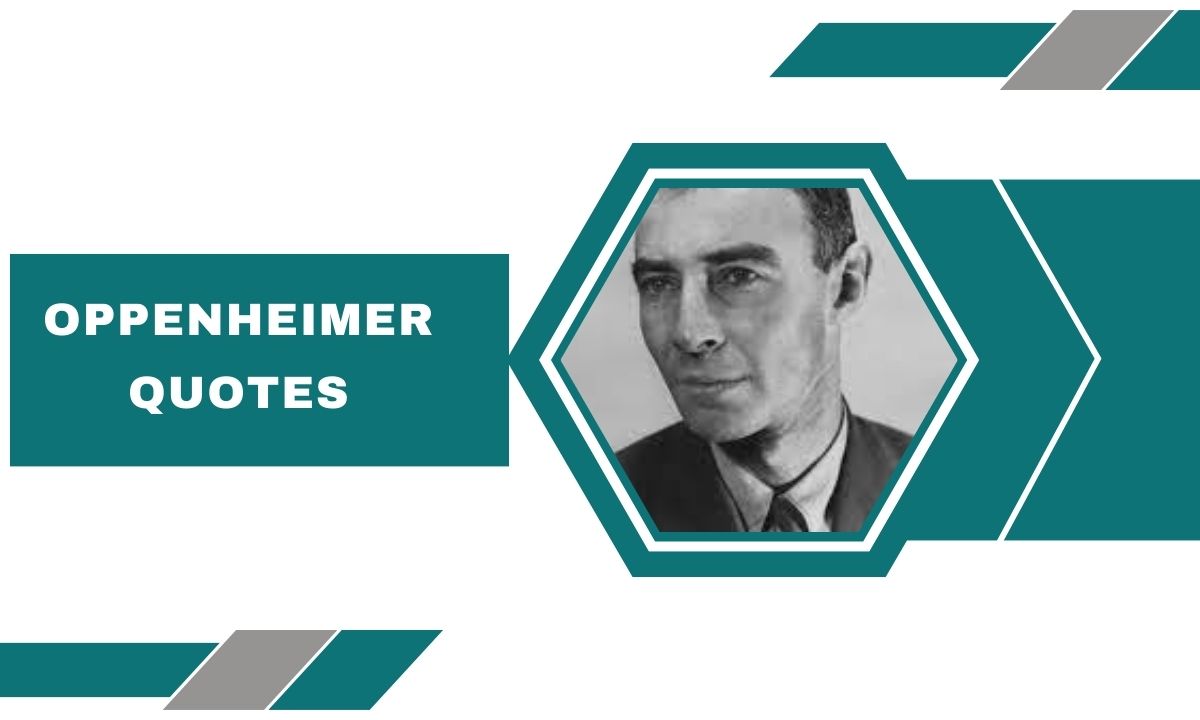J. Robert Oppenheimer, a brilliant physicist and one of the key figures behind the development of the atomic bomb, was renowned not only for his scientific achievements but also for his profound insights into the human condition. Oppenheimer’s eloquent and thought-provoking quotes continue to resonate with individuals from various walks of life, encapsulating his intellectual depth and contemplative nature. In this blog article, we embark on a journey to explore Oppenheimer’s wisdom, unveiling a collection of his most powerful quotes that transcend time.
“Now I am become Death, the destroyer of worlds.”
Oppenheimer uttered these haunting words upon witnessing the first successful test of the atomic bomb during the Manhattan Project. This quote reflects the weight of responsibility he felt as he realized the devastating power of the weapon he helped create. It serves as a stark reminder of the ethical dilemmas surrounding scientific advancements and the need for humanity to grapple with the consequences of its own progress.
“The atomic bomb made the prospect of future war unendurable. It has led us up those last few steps to the mountain pass, and beyond there is a different country.”
Oppenheimer recognized that the atomic bomb irreversibly altered the global geopolitical landscape. This quote emphasizes the transformative impact of nuclear weapons on the collective consciousness, urging us to strive for peace and explore alternative paths to conflict resolution.
“There are children playing in the streets who could solve some of my top problems in physics because they have modes of sensory perception that I lost long ago.”
Oppenheimer acknowledged the intrinsic curiosity and untapped potential of children. This quote highlights the importance of nurturing and fostering young minds, reminding us to embrace the inherent creativity and imagination that children possess.
“The best way to send information is to wrap it up in a person.”
Oppenheimer recognized that knowledge and wisdom are best transmitted through personal experiences and interactions. This quote encourages us to engage in meaningful conversations, to share our stories, and to learn from one another, as it is through human connection that ideas can truly flourish.
“There must be no barriers to freedom of inquiry. There is no place for dogma in science. The scientist is free, and must be free to ask any question, to doubt any assertion, to seek for any evidence, to correct any errors.”
Oppenheimer emphasized the fundamental importance of intellectual freedom and open-mindedness in the pursuit of knowledge. This quote serves as a reminder that science thrives when we challenge existing paradigms and approach the world with curiosity and skepticism.
“The optimist thinks this is the best of all possible worlds. The pessimist fears it is true.”
Oppenheimer’s insightful quote captures the contrasting perspectives of optimists and pessimists. It highlights the complexity of human perception and the subjective nature of reality. It encourages us to critically evaluate our own biases and consider multiple viewpoints when interpreting the world around us.
Conclusion:
J. Robert Oppenheimer’s quotes continue to resonate with us today, offering profound insights into the human condition, the consequences of scientific progress, and the importance of intellectual freedom. His words provoke introspection and invite us to reflect on our role in shaping the world. As we explore Oppenheimer’s wisdom, let us strive to learn from his legacy, fostering a deeper understanding of our shared humanity and the responsibility we bear in the pursuit of knowledge and progress.

